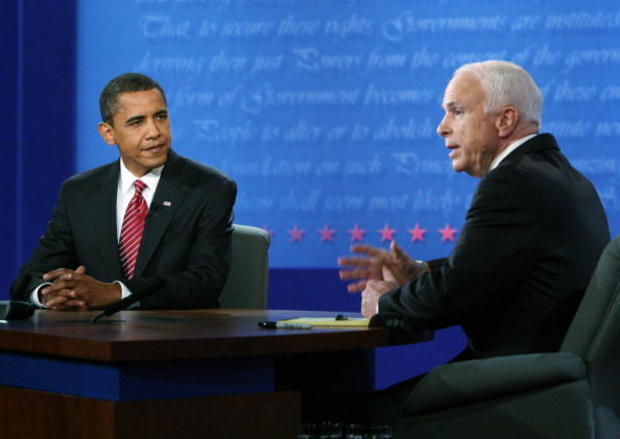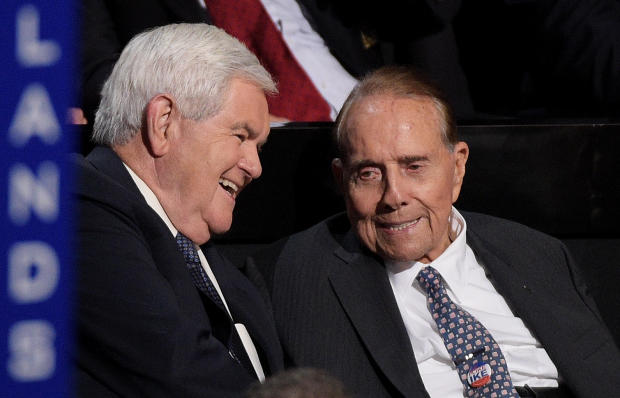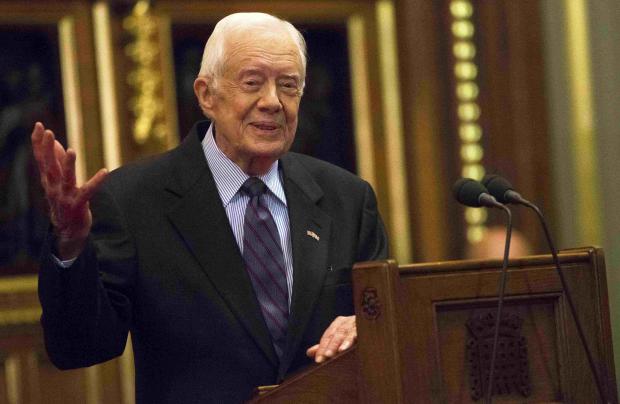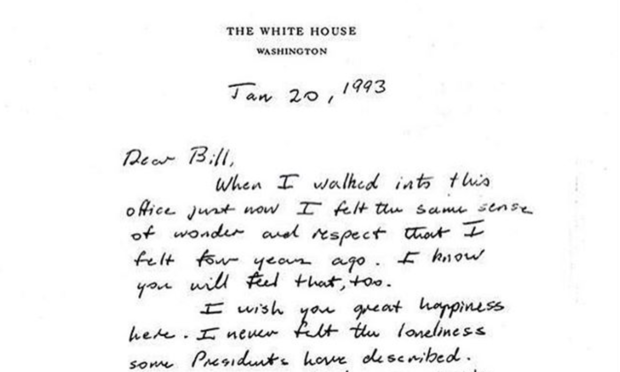How past election losers are reacting to Trump's "rigged" claims
Earlier this week, Republican presidential nominee Donald Trump refused to say whether he would accept the outcome of the Nov. 8 election, casting doubts on the "rigged" process during the third and final presidential debate in Las Vegas.
Less than a day later, Trump pledged to "totally accept" the results -- so long as comes out the victor.
"I would like to promise and pledge to all of my voters and supporters, and to all of the people of the United States, that I will totally accept the results of this great and historic presidential election -- if I win," he said at a rally in Delaware, Ohio.
Trump then pointed to the 2000 election as historical precedent not to concede, saying if then Democratic nominee Al Gore and George W. Bush had been posed the same question weeks before that year's presidential election, there would never have been a recount.
"In effect, I'm being asked to waive centuries of legal precedent designed to protect voters," Trump said.
But how does Trump's implied refusal to accept an election loss compare to how past presidential nominees dealt with defeat?
Here are what some past presidential nominees have said about Trump's statements:
John McCain, the Republican nominee in 2008
Arizona Sen. John McCain, who lost the 2008 presidential election as the Republican nominee, slammed Trump's behavior Thursday, penning a lengthy statement that never once mentioned his party's candidate.
"All Arizonans and all Americans should be confident in the integrity of our elections," McCain said in a statement Thursday. "Free and fair elections and the peaceful transfer of power are the pride of our country, and the envy of much of the world because they are the means to protecting our most cherished values, the right to liberty and equal justice."
"There have been irregularities in our elections, sometimes even fraud, but never to an extent that it affected the outcome. We should all be proud of that, and respect the decision of the majority even when we disagree with it. Especially when we disagree with it," he added.
McCain went on to discuss the results of the 2008 election.
"I didn't like the outcome of the 2008 election," he said. "But I had a duty to concede, and I did so without reluctance. A concession isn't just an exercise in graciousness. It is an act of respect for the will of the American people, a respect that is every American leader's first responsibility.
"Whatever our differences we owe each other that respect, which we express by defending the democratic values and practices that protect us all," he said. "I don't know who's going to win the presidential election. I do know that in every previous election, the loser congratulates the winner and calls them, 'my president.' That's not just the Republican way or the Democratic way. It's the American way. This election must not be any different."
McCain took back his endorsement of Trump following the publication of the reality television star's lewd 2005 tape, where Trump can be heard boasting about his unwanted sexual advances on women.
Bob Dole, the Republican nominee in 1996
Bob Dole, the former Kansas senator who was the Republican party's presidential nominee in 1996 when he lost to Bill Clinton, defended Trump's comments Friday.
"I fail to understand the media fury when Trump said he wouldn't immediately concede," Dole said in a statement to CBS News.
He discussed his own "personal experience" with the issue when he was the vice presidential nominee of his party in 1976, with President Ford at the top of the ticket. In that election, For lost to Jimmy Carter by a relatively narrow margin.
"President Ford did not immediately concede because he wanted to make certain the final tallies in each state were accurate, especially Hawaii and Ohio which were swing states," Dole explained. "I called Bryce Harlow, a confidant of Ford, to see if the President was considering a recount of those two states. Sometime in the next day or two, Ford conceded to Carter, satisfied he had lost fair and square."
Dole then posted that "[i]f it were a major victory in favor of Hillary, I believe Trump would likely concede."
"If it is a close race, it would not be out of bounds to hold off and take a second look at the numbers," he added. "I'm sure Hillary would do the same on the flip side."
Jimmy Carter, the Democratic nominee in 1980
Former President Jimmy Carter, who lost his reelection bid to Ronald Reagan in a 1980 landslide, chided Trump's claims of a "rigged" election as being "unfounded and irresponsible" in a statement he released through the Carter Center.
"Based on our knowledge of the electoral system in the United States and of the many independent analyses of U.S. polling processes, The Carter Center has great confidence in the overall administrative integrity of U.S. elections," he said.
"The Carter Center has observed more than 100 elections around the world, some of them quite problematic. However, allegations of potential rigging of U.S. elections, as well as of widespread voter fraud, are baseless, serving only to undermine confidence in our democratic processes and inflame tensions."
The statement went on to say: "The Carter Center notes that no election is perfect and that there will be isolated administrative incidents in U.S. elections as in every election conducted around the world. However, these incidents should not call into question the integrity of the entire election. While The Carter Center is not observing elections in the United States, a number of reputable nonpartisan organizations are observing and will issue public reports of their findings after the election."
George H. W. Bush, the Republican nominee in 1992
In one example of a graciously accepted defeat, former President George H. W. Bush wrote a letter to his Oval Office successor, Bill Clinton, who won the 1992 election against Bush.
The 1993 letter, which wished Clinton "great happiness," circulated widely on social media earlier this week, as Trump continued to harp about a rigged election.
"There will be very tough times, made even more difficult by criticism you may not think is fair," Bush wrote at the time. "I'm not a very good one to give advice; but just don't let the critics discourage you or push you off course."
Calling Clinton "our president," he added: "your success is now our country's success."
"I am rooting hard for you," Bush said in closing.



